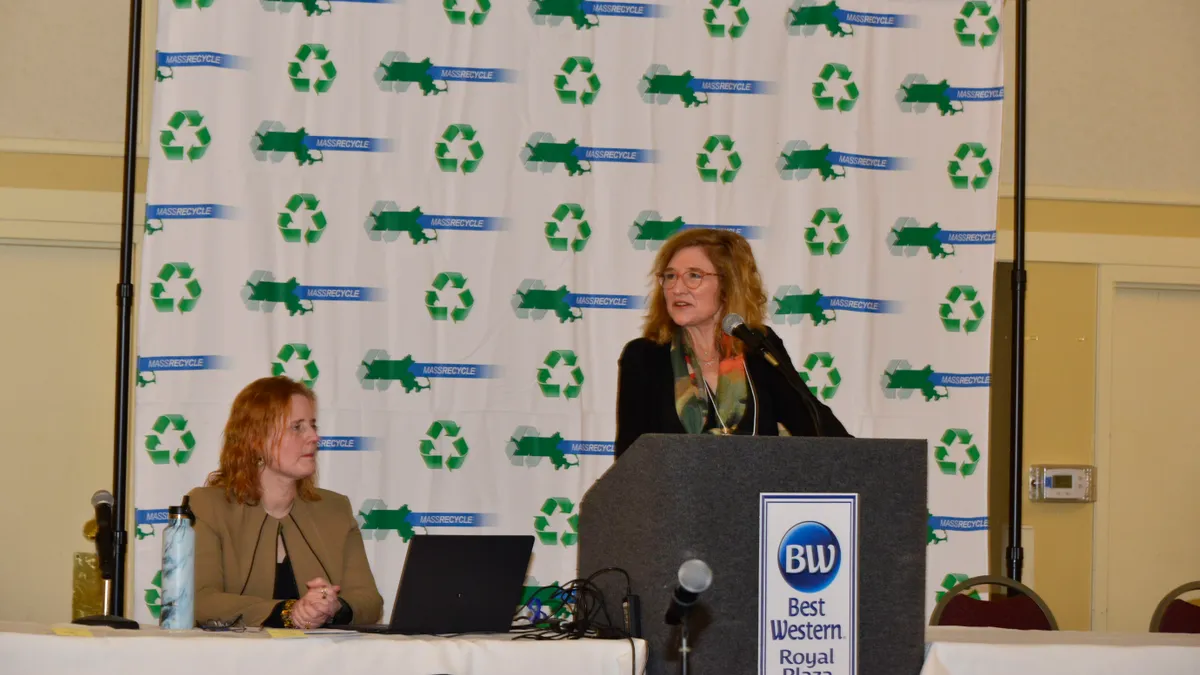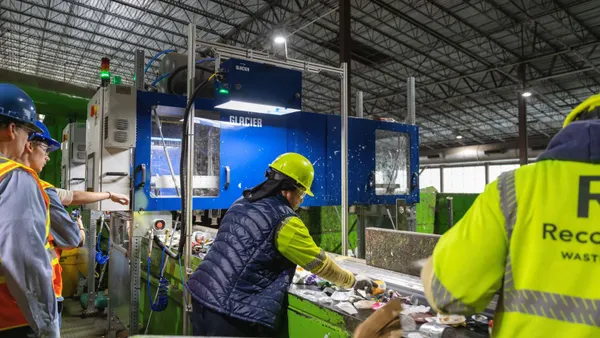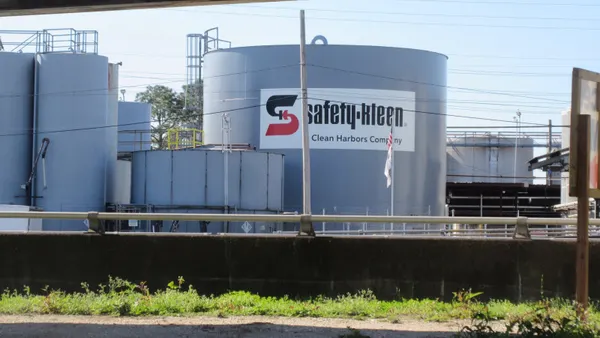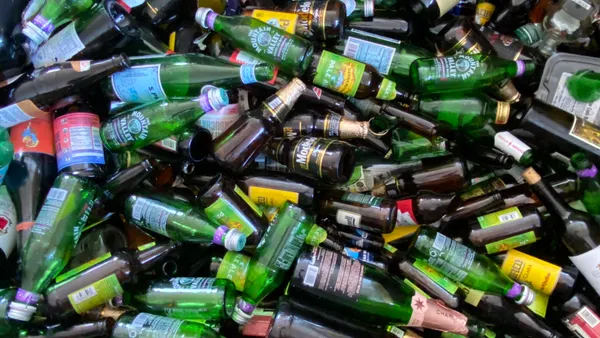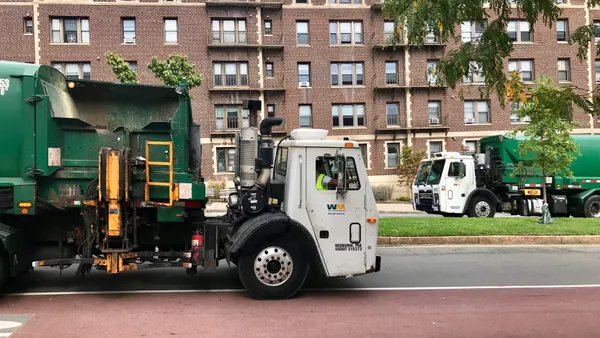The Massachusetts recycling community’s annual conference featured a rebuke to the growing narrative in recent years that the system isn’t working, with a focus on improving public confidence.
“We're facing some pretty serious challenges right now,” said Brooke Nash, the keynote speaker at MassRecycle’s annual conference in late March, speaking to an audience that included many municipal recycling coordinators. Nash said she feels that certain media outlets and nonprofits are especially focused on the concept that “recycling is maybe a hoax or it's a conspiracy."
Nash spoke in her personal capacity as a 40-year recycling professional planning to retire soon, not as the branch chief for municipal waste reduction at the state’s Department of Environmental Protection. She likened the current landscape of post-National Sword media coverage to skepticism in the early 1990s that culminated with an infamous 1996 New York Times story describing the concept of recycling as “garbage.”
Members of MassRecycle — a trade group that includes private and public sector waste professionals — have been particularly irked by stories, social media posts and opinion pieces run in outlets such as NPR and The Atlantic within the past year.
These have been driven in part by environmental groups such as Greenpeace and Beyond Plastics, which published reports last year questioning the validity of plastic recycling systems and statistics. Those groups and others are especially focused on single-use plastic items that tend to have lower commodity values, as well as finding ways to phase out single-use plastic with alternative materials or reuse/refill systems.
"What sort of blows my mind at this point is that our recycling foes are now national nonprofit environmental organizations,” said Nash, adding that while the plastics industry may be their target, she feels the outcome has been broader. “I don't think there's much disagreement in the room that our world is full of plastics, that we need to stop producing it and using it at the rate we are. Our planet is in trouble. But this message targeting big plastics has created collateral damage."
Nash said that while the 5% plastic recycling rate cited by certain groups is technically accurate, she feels it’s misleading to include in the denominator many plastic items that are not intended for recycling. This, coupled with a general narrative that recycling plastic isn’t worthwhile at all, has prompted a renewed counter-effort by MassRecycle.
"We know that you are the people dedicated to teaching your communities about the recycling process. We're offering to let you see with your own eyes on our tours that our recycling facilities are working hard to process material and give it a second life,” said MassRecycle President Gretchen Carey, who also works for Republic Services, adding that the group is working to help municipalities better understand who is buying their material.
MassDEP recently published information about certifications for MRFs in the state, including details on end markets for specific commodities, as part of a broader public education effort in recent years. Nash said the goal is to increase transparency and show residents that “this is a real industry, this is how it happens, there's nothing magic about it."
Other resources are also published through the state’s Recycle Smart platform, which includes a standardized list of acceptable items based on input from all MRF operators in Massachusetts. The platform includes a function to search by item type, a map that indicates where material from each municipality goes, free educational materials for municipalities and resources in eight different languages, among other features. An estimated 1.1 million people have visited the site since 2018, including 231,000 unique visits in the last six months.
Nash said her concern with the current scrutiny on recycling is that the public may decide to stop sorting properly or that they shouldn’t participate at all. And while recycling costs have risen dramatically in recent years — in part due to a shift toward more lucrative processing fee contract models by the industry, rather than agreements tied to volatile commodity values — Nash thinks this has been overstated.
"We've never questioned what we pay to pick up garbage and send it on a one-way trip to a landfill or an incinerator,” she said. “Recycling is actually the opposite of paying to throw away garbage because we're collecting scrap materials and producing a commodity to return to the manufacturing supply chain."
While Massachusetts is more active than many states in terms of recycling regulations, including disposal bans for numerous common curbside materials, MassDEP’s latest waste characterization data shows room for improvement. The state’s solid waste management plan aims for a 30% reduction in waste disposal volumes by 2030, though many area professionals say additional policy may be needed to achieve that.
Nash said that Massachusetts’ estimated 38% container redemption rate is among the lowest of all U.S. bottle bill states. She advocated for legislators to update the system, enact an extended producer responsibility program for packaging and paint, and ban or restrict plastic bags and polystyrene foam.
Legislation has been introduced for many of these concepts before, but none has gained notable momentum in recent years. A speaker at the event from the Massachusetts Beverage Association said his influential group remains generally opposed to a bottle bill expansion but could be open to certain forms of EPR. The local waste industry also has been cool toward bottle bill and EPR proposals in recent years.
In the meantime, MassDEP is expanding its work on reduction and reuse, and the agency’s 2030 plan is said to be a priority of its new commissioner.
“If we're really going to turn around what we call our make-take-and-dispose society, we are going to have to focus upstream. And that means reducing, reusing, repairing, sharing, repurposing, refusing,” said Nash. “We're not going to recycle our way out of this mess.”
Interested in more packaging news? Sign up for Packaging Dive today.



